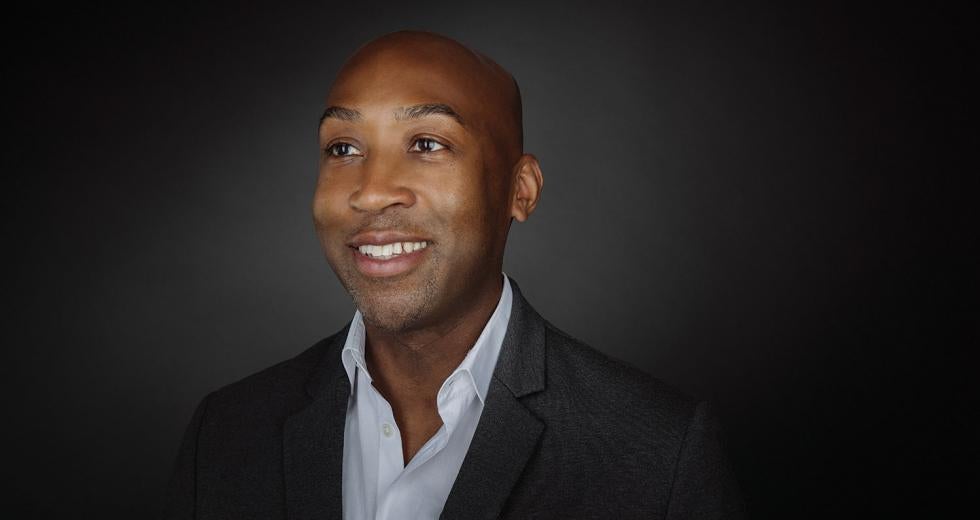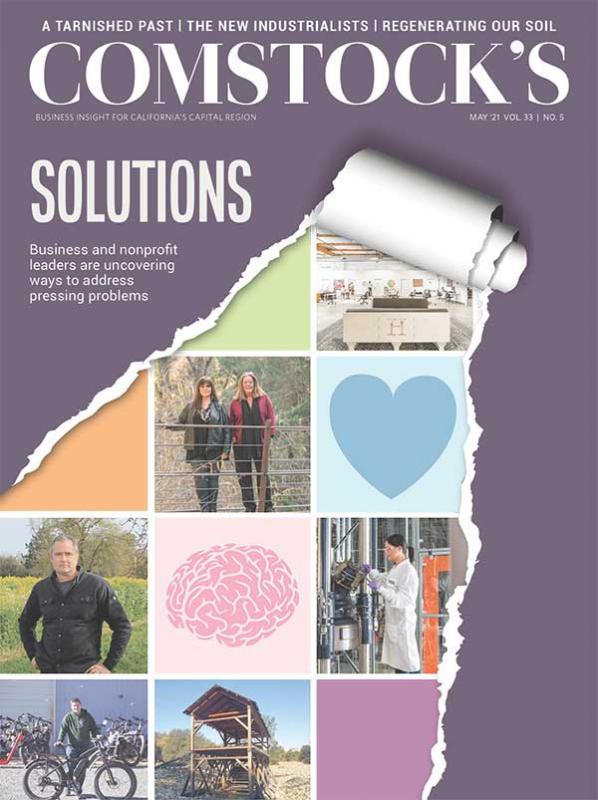Kwame Anku is CEO and chairman of Black Star Fund, an early-stage innovation fund based in Sacramento. Anku previously cofounded and served as principal of Black Angel Tech Fund, launched in 2016 to provide venture capital for Black technology entrepreneurs. Anku, a graduate of Stanford University, is a mentor of Founder Institute Sacramento and on the advisory board of the Sacramento State Carlsen Center for Innovation & Entrepreneurship. Comstock’s spoke to Anku about his fund (which plans to close at $12 million in May) and the importance of investing in Black entrepreneurs.
Tell me about your background and how you got into investment work.
There’s a lot there, but let me start with the chapter that will be helpful in 2015. I graduated from Stanford back in ’94. I think the importance is I was there at the time of the dawn of the internet. The guy who created WhatsApp (Brian Acton) was in my class, the guy who created Yahoo, Jerry Yang, was two years ahead of me. Reid Hoffman of LinkedIn was a year behind me. But, in 2015, I was actually working with (the musician) Prince; I was doing a lot of different things with him, including helping develop his first mobile app, as well as leading a national organization called #YesWeCode, which was focusing on getting African American young people involved in technology and getting jobs in coding.
I was at a summit for African American Stanford alumni in Atlanta, and we were talking about the lack of diversity in technology. At the time, tech companies had been reporting that less than 2 percent of employees across the board were African American. So there was a real kind of an outcry. What do we need to do? How do we put some pressure on these companies to change the hiring practices? I was on a panel that basically said we should do the same thing that our classmates did (who) created all this technology: We should focus on aggregating capital and investing that into creating new companies, as opposed to putting pressure on existing companies that don’t have the representation that we want to see. From there, a group of Stanford alumni created the first fund I ever did, which is called the Black Angel Tech Fund. We launched it in 2016, and I ran that fund for two years. …
Then I started my own fund, which is Black Star Fund. But a lot of the influence that I had, in terms of that mentality, really came from being a fan of Prince and working with him because he was just so adamant around ownership, and you can’t influence corporate culture from the outside. The real way to create transformation is not to figure out how to infiltrate the corporate culture but to invest and create a corporate culture.
In terms of addressing this 2 percent problem among tech companies, by investing and creating this new culture, in doing so, does that end up influencing the corporate culture that already exists?
Yeah, we’re seeing it now. When you dial the clock back and go back to 2015, there was no fund in the whole country that was focusing on Black tech entrepreneurs. That’s not 1995, 1975; that was literally six years ago. … You look today and see all of the funds that exist that didn’t exist back then, that are now getting millions and millions and millions of dollars to invest in diverse founders — in the corporate culture that you’re referring to — being part of that process and making those investments. I’ll give you an example. Bank of America just announced a $150 million commitment to 40 different funds that focus on diverse founders. That’s as mainstream and as corporate and as conservative of an industry as you could possibly get. … I’m intimately connected to that process because I helped to architect the first investment they did in Grand Rapids (Michigan) for a fund that I consult for called the New Community Transformation Fund.
What we charted out … and were pioneering in the space in less than six years is having a profound effect. Now granted, you had George Floyd and you had the (social) unrest, but we’ve had those kinds of incidents more times than any of us would like to deal with. But they’ve never spawned billions of dollars of capital investment in for-profit investments to be able to create social change — that we’ve never seen before. So what changed? The police brutality didn’t change. The social unrest didn’t change. The desire to do something didn’t change. The commitment to dollars didn’t change. What changed is them saying, we’re not just going to put this in community organizations; we’re not just going to make charitable contributions. We’re going to make for-profit investments in instruments that will create wealth to close the wealth gap.
We were pioneers and starting to say, look, the problem we’re facing is not just health disparities or quote-unquote economic disparities or even social injustice. The problem is that when communities don’t have capital, they don’t have power. We’re serious about creating change. We’ve got to be dealing with the power gap. And the only way you can deal with the power gap is from an investment standpoint.
If you look at Google or Apple or Hewlett-Packard or Facebook, you’re talking about something that started with two people or four people and ultimately created hundreds of thousands of jobs and billions of dollars of wealth. How did you go from two to 100,000 employees? How did you go from two to 20,000 employees? How’d you go from no money to billions of dollars in market cap? It all started because a few people put together $100,000 to $500,000 to help them get started. So if you replicate that same process, for any group, you’re going to see significant changes. We’re seeing it now with women investment funds, same thing. You could say, oh well, women don’t have representation, and women don’t have power in the boardroom, women don’t have access to capital. We can say that over and over and over, or a group of wealthy women can get together, put together a few million dollars and invest in some incredible women entrepreneurs and change the game, which is exactly what we’re watching happening right now.
Are you still involved in Black Angel Tech Fund, or have you moved over completely to Black Star Fund?
I moved completely over to create a fund. … I wanted to create Black Star Fund in a particular way. … It is (the) main fund, sole fund that I run. I consult for other funds that are coming up across the company that want to be in this space.
(It’s) amazing to be able to share some of the data (of Black Star Fund), and you’ll see … 53 percent of the founders are women; 77.5 percent of the capital we’ve invested, which is millions of dollars, has gone to Black women founders. Our companies have raised collectively over $90 million of investment capital. We’ve invested in 13 companies. Our companies have generated millions of dollars last year in revenue. It’s one thing to raise capital as a startup, it’s another thing to make money. … We’re proving a thesis. … You’re investing in Black founders, you’re getting outsized returns. If the landscape was so terrible and dire to be able to raise money, then how could these 13 Black-led companies raise almost $100 million?
In terms of investments, what do you look for that sets a startup apart from all the rest?
The main thing is really the founder. I always say there’s a difference between an entrepreneur and somebody who wants to be their own boss. A lot of people want to be their own boss, and very few people are cut out to be entrepreneurs. What I’m looking for is a true entrepreneur and a founder who has a big vision, has the mental wherewithal and tenacity to work very hard to see opportunities where other people see roadblocks, to see possibilities where other people see closed doors, to imagine things that don’t exist that need to exist that will solve real problems in the marketplace, and a personality type that basically believes they will go through a brick wall to get things done. … I joke with people and say I’m not really an investor, I’m a talent scout.
In December 2020, Black Star Fund made a six-figure equity investment into Reviver, a Granite Bay company that makes digital license plates. Why did you make that investment?
People who create products of the future are people who see things that other people don’t see and see a way of life that we’re moving to, but we’re not there yet. To me, Neville Boston, the founder, is that type of entrepreneur. … The old cars, which are basically steel machines on wheels, those have changed to become computers on wheels. … You changed everything about the car to make it modern, make it electronic and make it connected to the Internet of Things. The only thing that hasn’t changed is the license plate. … I believe that — just like every driver has to have car insurance — every car in the world is going to have a digital license plate in the next five to 10 years.
To have a founder who has that level of vision, has been able to raise millions of dollars, has been able to get the buy-in from the state municipalities, and has been able to create partnerships internationally, and happens to live (locally) and the company is based here, was just like a dream come true from an investment standpoint.
What other companies or investments do you consider success stories?
Partake Foods is a great success story for us. The founder, Denise Woodard, I met her at a pitch competition I was judging three years ago in North Carolina. She told us a very emotional story about her and her husband almost losing their 18-month-old daughter to a severe food allergy. Denise left a very lucrative position at Coca-Cola. … She had a supply chain MBA from Arizona State (University), so really technically savvy and business savvy and great experience. She left that position to start a healthy-food company to meet the needs in the marketplace (for) families … affected by food allergies, because she was able to study the market (and) realize there weren’t a lot of choices, and it was also a huge business opportunity. When I met her, she was literally selling (vegan) cookies out of her car.
Fast forward to 2019 when we started investing in her company. She was raising a million dollars, and we invested, Jay-Z came in with $600,000 and closed out the round. … Fast forward to December of 2020, she is in every Target store in America. She is rolling out in Trader Joe’s across the country. She finished last year with almost $4 million in sales. Rihanna became an investor last year as well. The artist H.E.R. came on as an investor. The company is now seen as a national success story — great brand, healthy cookies and snacks sold everywhere you can imagine, great team, great business messaging in the marketplace.
We were able to get in early in that company and will do very well later when that company is sold or goes public. All of that stemmed from being at a pitch competition in Raleigh, North Carolina.
In terms of Sacramento’s innovation and startup ecosystem, from your perspective, what is good about it, or what is still lacking?
I think what’s good about it is the people who lead the various parts of the ecosystem are a close community and have a shared vision and work really well together. I work and consult and travel and have companies all over the country, and part of the biggest problem in a lot of other markets is their ecosystem is very fragmented. In Sacramento, it’s the exact opposite. …
What’s lacking is significant institutional capital commitments. We’ve got a lot of high-net-worth individuals in Sacramento who believe in that ecosystem and are making great investments in companies and small funds. But what we need is the corporate culture to start to step up, because we’ve got so many corporate headquarters here that have control of such significant capital that if they came to the table, making significant capital commitments to the innovation ecosystem, this place could be like any of the rapidly emerging tech and innovation hubs that we see in different parts of the country.
We have a new administration in the White House. What should be the role of government when it comes to entrepreneurship?
I think it’s three things. It’s really simple. The first is convening (people) … doing the White House summit on venture capital, doing the White House summit on emerging fund managers … because it’s such a validation. It brings people together, and it helps us in the marketplace because it gives us credibility.
The second thing is working with us on policy. What are the things that (we) need that will help in what (we’re) doing? For example, Mariah Lichtenstern, here in Sacramento, who’s the head of DiverseCity Ventures, has been one of the leading advocates in terms of changing the policy around accredited investors. Before, you had to have made $200,000 a year to be able to make equity investments. So that literally eliminated huge swaths of people who may have been able to invest but didn’t make that income requirement. She’s one of the leading advocates on that policy change. The new administration can help us with creating the kind of policies that are going to be more conducive to the kind of work that we want to do and need to do.
The third is just a very deliberate focus on getting our entrepreneurs government contracts. Because our entrepreneurs are doing everything from business intelligence to SaaS (software as a service) products to cybersecurity to virtual reality to communication. There’s so many different verticals that we invest in, and for our entrepreneurs to be getting government contracts would be a huge boost to those companies. Because, again, it’s not just the contract value of working with the United States government, but it’s also the validation which then allows you to get other deals with everybody else.
Your public-speaking bio says you speak about “encouraging diverse audiences to think differently about social inclusion and technology.” How should people be thinking about these things?
It goes back to what we were talking about earlier. If you’re looking at the problem being: How do we get Facebook to hire more Black people? That’s a certain frame within which you think (about) the problem and how the problem can actually be solved. If you ask the question: How do we create a Facebook, created by and led by a woman of color? That puts you in a completely different arena. And that’s what I challenge people to do, to say, let’s think about these issues, challenges and problems in a completely different way. Let’s ask different questions. And then let’s create different ways to get where we want to get to.
I’m less interested in how … we get Facebook to hire more Black people than I am interested in creating more technology companies that are founded by, led by and funded by African American folks. … I challenge us to ask different questions and to reframe conversations that we’ve been having for decades that haven’t led us to solutions, with the goal to empower people, because if we’re looking for the government to change things, or we’re blaming other sides, then we stay in the same place. But if we ask different questions and come from a frame of reference where we have the agency to actually create the change, then you have the power to create the reality that you want to live in, in a society that you want to live in.
Edited for length and clarity.
–
Stay up to date on business in the Capital Region: Subscribe to the Comstock’s newsletter today.
Recommended For You

For Art’s Sake
CLARA Executive Director Megan Wygant on how her nonprofit has continued to support arts organizations and provide arts education during the pandemic
“One of the things that has been so interesting about the pandemic is … seeing the way in which our tenants have risen to the challenge,” Wygant says.
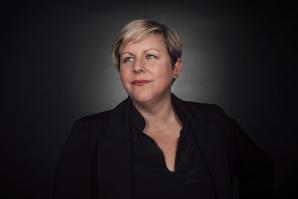
A Catalyst for Cures
StemExpress founder and CEO Cate Dyer on how her company accelerates medical advancements
Comstock’s spoke to Dyer about her company’s function as an accelerator of medical advancement.
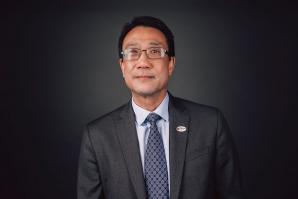
Leading With Energy
SMUD CEO and General Manager Paul Lau on reaching zero carbon emissions by 2030
Comstock’s spoke to Lau about leading the country’s sixth-largest community-owned electric utility and about his plan to reach zero carbon emissions within 10 years.
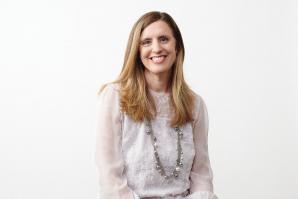
The ‘95630 Experience’
Folsom City Manager Elaine Andersen on the city’s growing opportunities and small-town feel
Comstock’s spoke to Andersen about the Folsom Plan Area, which will add housing, schools, parks, and commercial and office buildings, and bring in an estimated 25,000 new residents.



